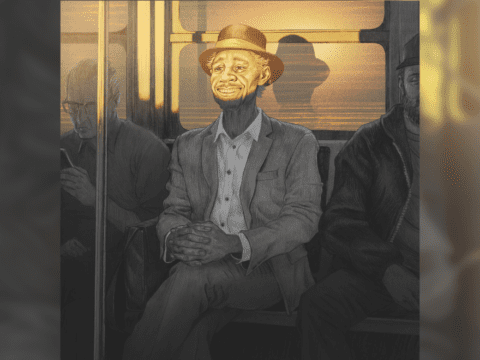Q: Friends of mine, connected with another denomination, have been told that full-time United Church ministers are not obliged to visit or phone the sick and shut-ins within their congregation. Can this be true?
A: It never ceases to amaze me what people think clergy do or don’t do. I and every minister I know make hospital visits when a person is ill. I’ve seen countless faces light up when I walk into the hospital room or express relief when it’s an end-of-life situation. These are deeply affecting moments when a person is at their most vulnerable.
You may unsubscribe from any of our newsletters at any time.
We also call and visit shut-ins, but I think it’s critical that the congregation plays a role in this work as well. Ongoing pastoral care should, in my view, be based in the members of the congregation. If you have a dedicated pastoral care minister, that’s amazing. But if your minister works part time, there is no way they can do this on top of everything else.
More on Broadview:
Also, I encourage you to see your minister as a critical asset. In a time of massive decline, serious conversations need to be had about where they can spend their time strategically to help create long-term sustainability for your community of faith.
In my own ministry, I found community engagement and visiting new folks, especially folks in their 20s and 30s, incredibly important. Meeting them in their homes or their workplaces or even on Zoom builds connection and a relationship. It makes people feel valued and opens the door to deeper engagement with the congregation.
***
Rev. Christopher White is a United Church minister who lives in Hamilton. Do you have a query for Question Box? Email christopher.white143@gmail.com.
This column first appeared in Broadview’s December 2024 issue with the title “Question Box.”














Technically, you cannot make anyone do what they do not wish to do.
However, it seems ironic that one would call a person a Minister, if they do not minister.
Like any other pastoral duties, there are extenuating circumstances that prohibit habitual practices. I know leaders who are petrified of any institution, for a myriad of reasons.
However, if we are called to visit the sick and those in prison, I would think the Shepherd would lead by example.
Again, I get it, a part time leader usually cannot take time away from other life duties every single time to visit someone with a cold, or broken leg. But they should be able to drop by one night every two weeks to visit someone who is hospital bound with a broken hip, or in a hospice with days to live. If they did so, they are better able to request their congregants to do the same.
As for visiting the “sheep”, again, if time doesn’t allow for seeing every congregant within a month, why do it? It may also be beneficial to explain to the congregation as a whole why you cannot visit everyone a one time. Most understand.
I WOULD HOPE however, that Spiritual Leader didn’t shirk their duties just because they felt they don’t have the time, or use time as an excuse. Or worse, didn’t make the time.
Visitation benefits both. We become a part of their lives, and they become a part of ours as well.
For me, visitation at a person’s home or in an institution were very important. Initially it’s a way of meeting one’s congregation and in doing so, through conversation, one is informed of other folk’s needs within the community. So often those going through a difficult time have nobody to listen to them, nobody to take the time to be with them, nobody they can really trust with their feelings. A minister is, or should be, that person. Many times I’ve spent an hour or more with a member of the congregation in their home and only when it was time for me to leave did they really bring up the topic they wanted to discuss. That usually lead to another hour. Old people are usually lonely and a visit from the minister lets them know that they are important and that they matter. As ministers, we should be the face and the presence of God’s love. We let a person know that “he or she” is important. That they are loved. Hospital visitation is the same way but I have found that when I go to a hospital I have “nothing” that I can say or do that will make the patient physically better, so my first stop is the hospital chapel where I pray and say to God…..”I have nothing, except YOU acting through me. Please let your loving Spirit act through me as I visit these people.” Then I make my rounds. I will admit that it can be difficult coming from a patient who is going home in a day or two and sharing a laugh or two with them and then going into a room where someone is dying and within the space of a minute or two coming from a light hearted chat to a literally deadly serious situation. For many people a minister is the physical emissary of God. For me, personal visitation was the most important part of ministry.